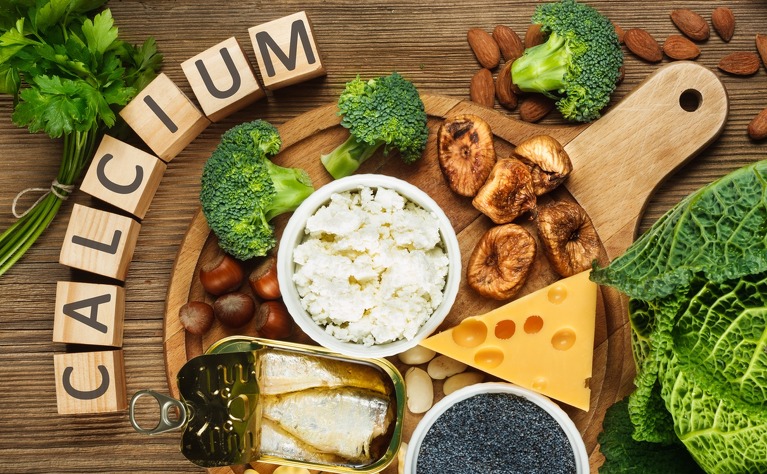
Calcium is important for bone formation and to keep bones strong and healthy. The circulatory and nervous systems rely on calcium to function. Your teeth also rely on calcium to keep them strong. People with inflammatory bowel disease (IBD) are at risk of calcium deficiency.
Vitamin D is important to regulate how much calcium circulates in the bloodstream and how much will be used by bones to maintain healthy structure. People with (IBD) are also at risk of vitamin D deficiency.
Your body does not make calcium and relies on getting it from the food you eat. If it doesn’t get the calcium it needs then the body will break down its own bones (where lots of calcium is stored) to get what it needs. This leads to osteoporosis.
Symptoms of calcium deficiency include:
Your doctor will probably carry out a blood test to look at the levels of calcium in your body. Some companies provide private testing at home - such as this* one based in the UK.
Steroid medications - such as prednisone - interfere with the absorption of calcium, slow down the process of new bone formation and accelerate the breakdown of old bone. Long-term use of steroids can lead to significant bone loss - thus it’s important that people on these drugs are given calcium supplements at the same time. Steroid medications are commonly used to treat Crohn's disease and ulcerative colitis flares.
People with IBD may also avoid calcium rich dairy foods due to intolerances or because these foods exacerbate their IBD symptoms. If you don't get calcium from other foods in your diet this can lead to a calcium deficiency.
Calcium deficiency can be treated either by taking a supplement, increasing the calcium-rich foods you eat - or both.
Milk, yogurt and cheese are all sources of calcium
Non-dairy foods rich in calcium include:
There are also calcium-fortified foods available.
View calcium supplements available to buy*.
*Please note this is an affiliate link which means if you buy from the company we may receive a commission. You will pay the same price as you normally would and any money earned will be used to support IBDrelief's work.